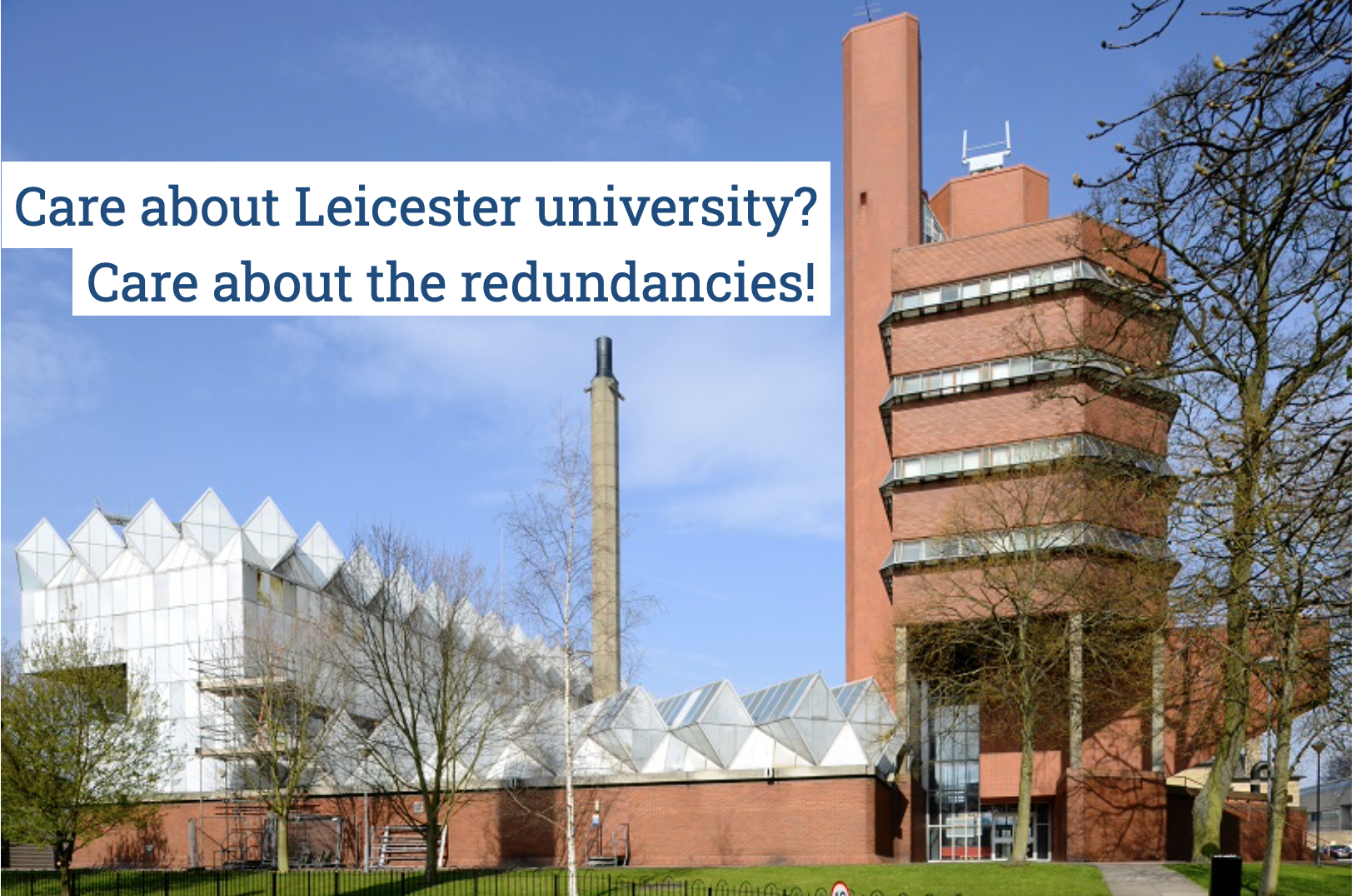Published: 16th February, 2021

If you are not one of the 145 at-risk members of staff, you may think that redundancies are necessary to secure the future of the University, given the financial crisis and pandemic. But is that true?
No. This so-called ‘Shaping for Excellence’ exercise actually demonstrates that there are serious problems with the decision making processes, actions and ideologies of the Executive Board: these problems impact us all. The areas the Board has selected for closure are not losing money – in some cases cash-cows are to be sacrificed in order to chase imagined unicorns. This round of redundancies will lead inexorably to further rounds, until there is no University left.
During poorly planned pre-engagement meetings in October and November, staff were asked to identify what they did well, what could be improved and what opportunities there might be. ‘Consultation’ of this sort is meaningless, superficial and a sham when management is not transparent about the purpose of the restructuring, and staff are made to feel that their own and their colleagues’ jobs rest on how they respond. It’s like being forced to play a game against each other, but not being told what the rules are.
The Executive Board has created these Business Cases based on ‘evidence’ of the worst quality: reports provided by consultants such as DataHE (the Cambridge Analytica of our sector) or by the perfunctory reading of staff website profiles and articles. They didn’t bother speaking to teams. The Executive Board has made assumptions that big data and applied disciplines are the way forward, without talking to researchers and practitioners in these areas within the University. They have relied on their own superficial knowledge of the roles and tasks in different disciplines and professional services within the University, instead of talking to the people who perform and manage those tasks.
Business Cases have been drawn up in secret. Information, especially financial information, is being actively withheld. Group ‘consultations’ have consisted of impenetrable scripted presentations of illegible slides, with no possibility of staff being able to process the volume of information in order to ask questions. The sessions have been set up with unfair time-scales, without informing staff what the aims are. Individual consultations have been set-up with unreasonable time-scales, where questions about the gaping holes in business cases remain unanswzered, with those behind the plans having no idea of what colleagues’ roles involve. How can they decide a role is redundant, unnecessary, if they don’t know what that person does?
The so-called rationale underpinning these Business Cases, the ‘Shaping for Excellence’ itself, is non-existent: try searching “University of Leicester” and “strategic plan” or “University of Leicester” and “shaping for excellence”. Seriously: try it.
When we look at the eight Business Cases being used to justify redundancies in the eight departments, area or units, we find incoherence and contradiction. They state aims of focusing on specific areas of research, professional services and teaching. Yet the proposed actions often involve sacking the very people who already do this work. The details of the proposals simply do not deliver the expressed aims, even in cases where the aims themselves are reasonable.
This contradiction between aims and actions means the Executive Board puts us in a position where we are held accountable for not not delivering on our responsibilities and objectives because mass redundancies make workload unrealistic and we lose the expertise that supports us.
First, can you recall a time when staff have felt worse? So many distressing factors – the pandemic, lockdown, isolation, home-schooling, financial strain, bereavement and illness. What about the incredible and exhausting changes to the way we work, teach and research? Recall that the University management has no qualms about making some staff in the high risk category teach on campus despite the threat to their health. But this is not all. After the loss of colleagues and support from previous redundancies, the Voluntary Severance Scheme, the dismissal of staff on precarious contracts, how will we cope with the loss of 145 more colleagues? Has our workload decreased? Are we intending to recruit fewer students? Jump through fewer TEF, REF, NSS and Office for Students hoops?
Second, if this is about ‘shaping for excellence’ then what is the strategic plan for the University? Have you seen it? (Did you try searching for it?) The people – the experts – working in these areas certainly have not. Because researchers and practitioners have not been part of designing these plans, they are flawed and will not achieve stated aims. Instead they will cause severe damage to research, teaching and professional support within the University. As we have seen starting to happen over recent years, the ensuing damage to external reputation with potential students and staff, creates a cycle of recruitment, funding and achievement problems. The future is bleak: prospective staff or students apply instead to institutions that treat them with respect, and Leicester, if it survives, can only compete with universities at the bottom of the league.
Third, if this is about finances, then these actions do not address the poor decision making around revenue streams and investment choices. They do not address the rationale of running the University as a business that has led us to this point. To avoid further deterioration, the University leadership team needs to start questioning the moral basis of their priorities and radically transform their approach to managing the university
Now is the ‘perfect moment’ to save our University –
Vote for industrial action!